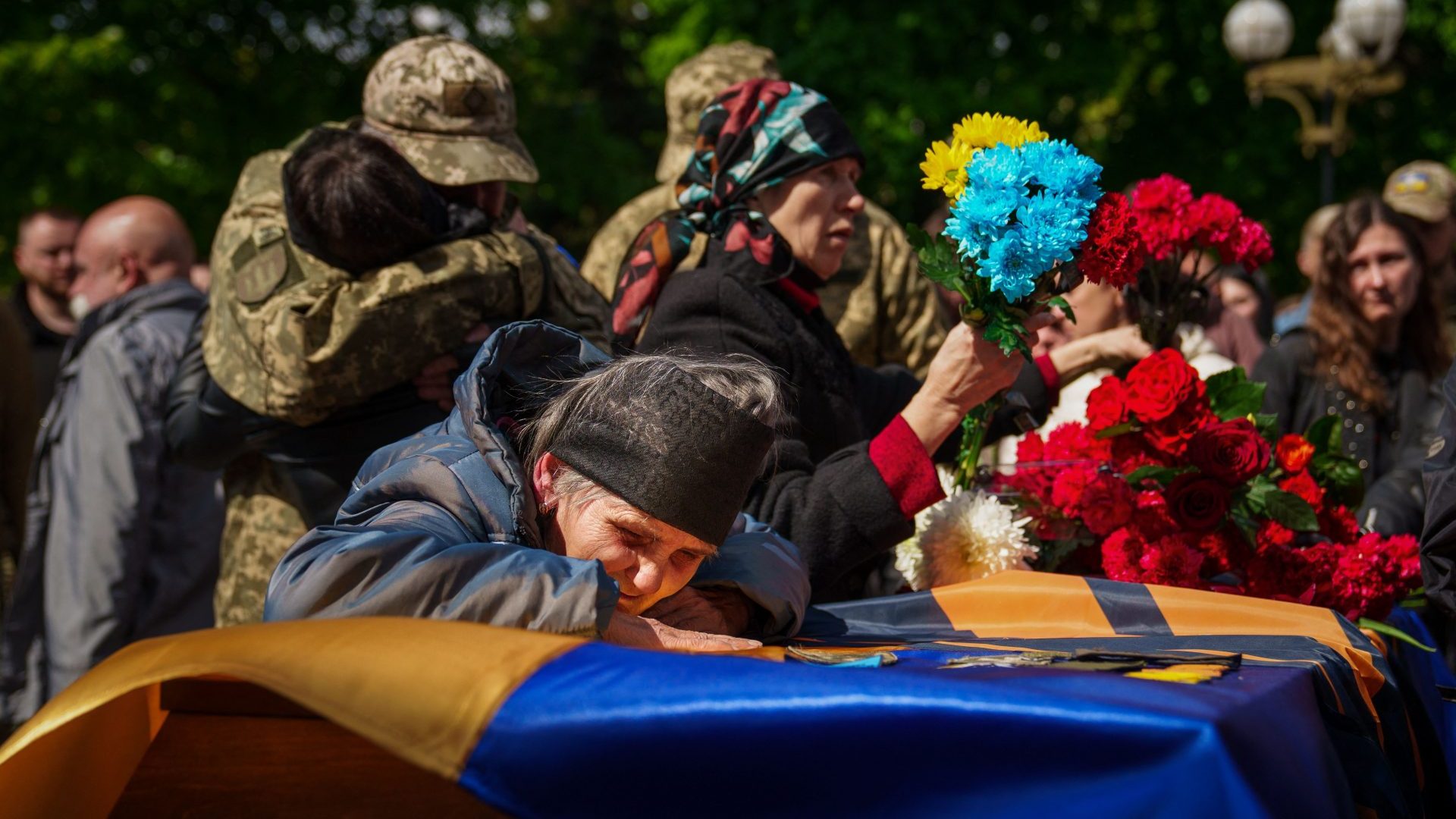“Mourning a place is even more difficult than mourning a person,” writes Victoria Belim in The Rooster House, an outstanding new memoir revisiting the Ukraine of her youth in search of family, history and the enigmatic strands that tie roots to destiny.
Many, if not most, people feel the pull of their origins. From checking the results of a distant football team to stepping on to a shingle beach from a dinghy fearing for the future and yearning for a home that may not even exist anymore, our sense of self is rarely fully uprooted from where we were formed. Whether we left by choice or through circumstances beyond our control, wherever we go in the world there will always be that starting point.
It’s hard to define what fires that yearning. Pride? Nostalgia? Can genetic memory have a built-in compass? If we do sense a link to the places that formed us, could it be a result of unfinished business, a vague awareness of old secrets taken to neglected graves?
Few European nations have stored as much residual trauma as Ukraine. Destined by geography to be a fissure between Russia and western Europe, narrowed but never closed by the pull of world events, its people have endured more than most. Bracketing the last century alone are the Holodomor famine of the early 1930s that starved four million to death and the attempted invasion by Russia that, in a little over 450 days, has taken the lives of more than 100,000 civilians and sent more than eight million into exile.
Kyiv-born Victoria Belim had left Ukraine with her mother in 1994 at the age of 15 for a new life in Chicago. In the US she would usually answer “Russia” when people asked where she was from, feeling that her new compatriots would struggle with the notion of a former USSR comprised of several nations. “Most Americans I had encountered could patch together a Soviet story but Ukraine was a blank,” she writes.
Belim returned to Europe as an adult, settling in Brussels, but it was not until the events of 2014 that she began to detect, deep in the core of her being, the pull of home.
In November 2013, the then-Ukrainian president Viktor Yanukovych, after long and apparently fruitful negotiations, rejected a cooperation deal with the European Union and accepted a bailout loan from Russia instead. With most Ukrainians having been in favour of a recalibration westward, Yanukovych’s volte face left the nation aghast, prompting widespread protests centred on Maidan Square in Kyiv in the early weeks of 2014.
The authorities’ clumsy and violent suppression of the Euromaidan demonstrations led to the deaths of more than 100 people, saw Yanukovych forced out and opened the way for Vladimir Putin’s Russia to invade Crimea on the flimsy pretext of preventing a coup.
Watching these events from Brussels, Belim found herself thinking increasingly of her Ukrainian childhood, spent mostly in Kyiv but with summers at the home of her great-grandparents, Sergiy and Asyam, in the village of Bereh, on the Vorskla River near Poltava in the centre of the country. Her grandmother Valentina still lived in the old family home, one of the last members of the family still in Ukraine.
Concerned by the military operation in the east, Belim encouraged Valentina to apply for a passport in order to escape a possible escalation of the Russian incursion but was rebuffed. Stubborn resistance runs in the family: when the Germans invaded during the second world war most of the family fled, but Belim’s great-great-grandmother stayed in Bereh to face down the invaders. When her relatives returned they found her not only safe and well but “wearing a pair of sturdy German boots”.
After an angry and upsetting Skype exchange with a vehemently pro-Russian uncle living in Israel, Belim decided to return to Ukraine for the first time since she left for the US. Arriving in the spring of 2014, she found her way to Beleh and a grandmother who spent most of her days tending to vegetable beds and a cherry orchard and expected her granddaughter to do likewise.
But Belim wanted to do more than plant tomatoes and whitewash the trunks of cherry trees (neither of which, according to Valentina, she did competently in any case). She wanted to flesh out childhood memories of her great-grandparents in order to understand more about where – and who – she came from.
Asya and Sergiy had survived some of the worst of the 20th century. They married during the Holodomor when Asya was teaching at a village school for as long as there were still children. Sometimes she had to dig graves for pupils who’d starved to death with no surviving family to bury them. Sergiy lost a leg at the Battle of Kursk in 1943, leaving both with a sense that almost any disaster could be overcome.
When Belim discovered one of Sergiy’s notebooks detailing life in the village and recording family events, the underlined sentence “Brother Nikodim, vanished in the 1930s fighting for a free Ukraine” was what really kickstarted The Rooster House.
Among all the stories Belim knew of her ancestors, there had never been any mention of a Nikodim. Armed with just a name, she determined to find out who he was, what became of him and why he was erased from the family narrative.
Far from being just a single-minded personal quest, The Rooster House evokes a Ukraine beyond the rubble-strewn images we see on the television news. Belim writes beautifully of the nature around the Bereh house and how the villagers talk about events in Crimea between assessing the prospects of their tomato plants.
Growing food is something they can control or at least influence – one neighbour even commissions a “cucumber whisperer” to promote the success of her crop – and betrays the psychological legacy of the famine. The relentless cycle of sowing, planting, tending and harvesting is born of a sense that another famine could be just a drought away, the constant seasonal resetting also an indication of how the villagers prefer to look forward rather than back. Valentina’s spikiness towards her granddaughter is born out of disapproval of her desire to revisit the past.
The war in the east gradually encroaches even on this remote region as spring 2014 turns to summer. When Belim agrees to photograph relics and documents for an Orthodox church in the nearest main town of Poltava she witnesses a man telling the priest that his son had vanished in Donetsk and his body could not be found.
“Tears streamed down his stubble-covered cheeks and he didn’t bother wiping them off,” she writes. “He bent his baseball cap in his hands and stared at the large crucifixion.”
The bureaucracy she encounters in her research is almost Soviet in its labyrinths and dead ends, but the path eventually leads to the Rooster House itself, a building that still embodies terror for locals. Built as a bank and named for the sculptures flanking its entrance, the building in the centre of Poltava became the local headquarters of the Soviet secret police, first the NKVD then the KGB.
Belim recalls her great-grandmother always avoiding walking near it on their trips to town and only speaking of it in a whisper. The grim joke went that it was the tallest building in Poltava because even in the basement you could see all the way to Siberia. When Belim begins to unearth Nikodim’s story it’s easy to see why the Rooster House still invokes chills.
Once she has unravelled as much as she can about Nikodim it feels as if the book has reached its conclusion, but somehow Belim manages to take the narrative further, exploring the schism with her pro-Putin uncle and the death of her father, lifting this story beyond mere recondite family history.
The Rooster House is a beautifully written evocation of the Ukrainian people through the prism of four generations of one family, but it is also a celebration of Ukrainian women. Men here are either absent like the enigmatic Nikodim, or incidental like “Uncle Tolya”, an elderly gravedigger who appears at the end of the book to help Valentina with the garden in Belim’s absence. The book truly comes alive in the presence of its women, not least in the redoubtable Valentina, but also Pani Olga, an invaluable confidante desperate to preserve the history of the Poltava church, and Nadia, master tutor of traditional embroidery who opens up an astonishing aspect of Ukrainian tradition for the author.
But there are also those women, most of them elderly, who offer Belim unquestioning hospitality in remote villages as she seeks homes associated with her past; women who have shared trauma and had trauma handed down to them, strengthening the sororal bond across distances and generations.
“The stories of painful events turn into black holes that devour everything around them,” Belim writes. “The traumas can’t be seen but the gravity surrounding them becomes so strong that it absorbs everything in their proximity.”
Yet this is a truly redemptive book, strangely joyful even, one that makes the tragedy of the Russian invasion personal. Publishing the book now could have felt exploitative and it would have been easy to wring torrents of pathos from contemporary events, but The Rooster House is all the better for its scarce and oblique references to Putin’s war.
“We’re in the backyard of a country that still thinks it’s an empire,” a friend tells Belim in Kyiv in 2014. “Until Russia lets go of its imperial aspirations we will be pulled back and forth.”
The Rooster House by Victoria Belim is published by Virago, price £20.




